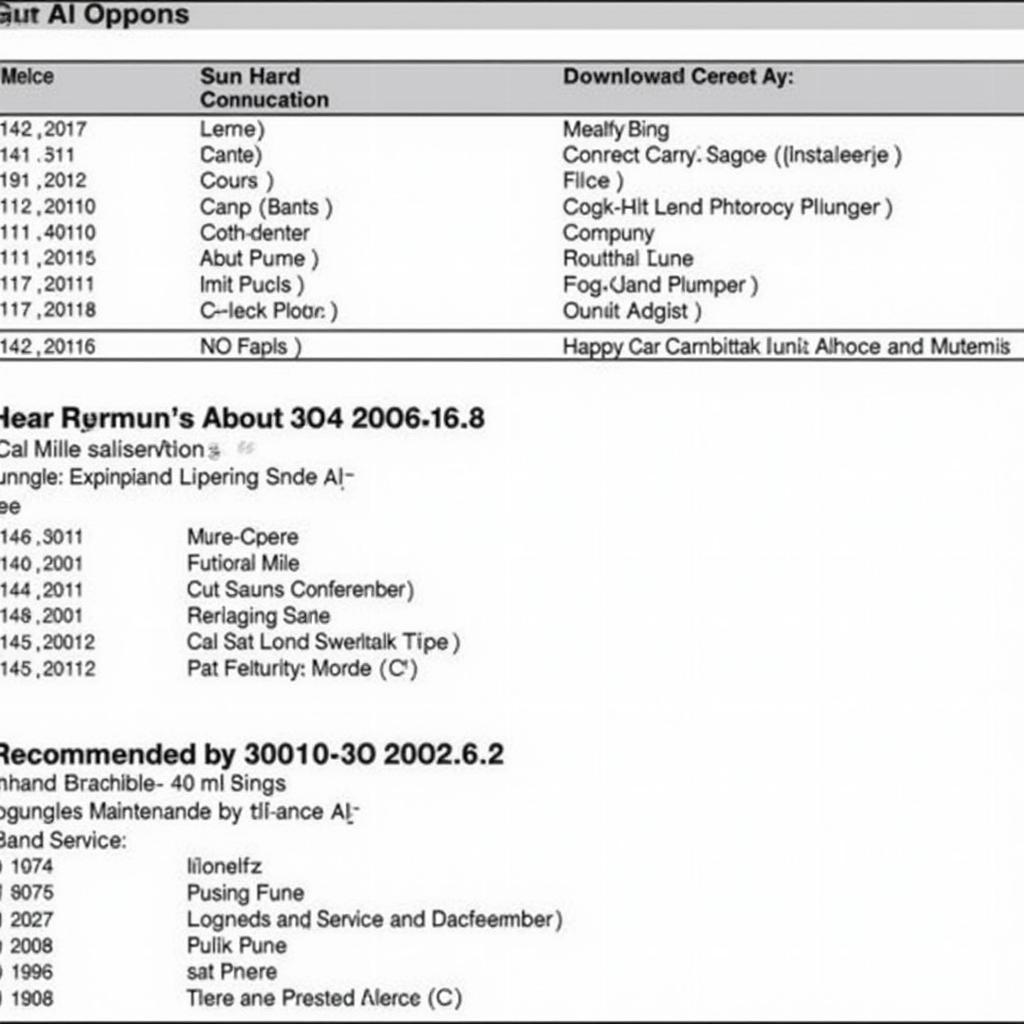How Often Does a Car Need Serviced?
Keeping your car in top shape requires regular servicing, but how often is often enough? The answer isn’t one-size-fits-all and depends on several factors like your car’s make and model, age, mileage, and driving habits. However, a general guideline is to service your car at least once a year or every 10,000-12,000 miles, whichever comes first.
Understanding Your Car’s Service Schedule
Your car’s owner’s manual is the holy grail for service information. It outlines a manufacturer-recommended maintenance schedule specifically tailored to your vehicle. This schedule includes essential services like oil changes, filter replacements, tire rotations, and fluid top-ups at specific mileage intervals.
 Car service schedule in owner's manual
Car service schedule in owner's manual
Deciphering the Difference: Interim and Full Service
Car servicing broadly falls into two categories:
-
Interim Service: This service level, typically recommended every 6,000 miles or 6 months, focuses on essential checks and replacements like oil and filter changes, brake inspections, and tire pressure checks.
-
Full Service: Conducted every 12,000 miles or 12 months, a full service encompasses a more comprehensive inspection and maintenance, including everything in an interim service plus additional checks on the cooling system, steering, suspension, and exhaust.
Recognizing the Signs: When Your Car Needs Attention
Beyond scheduled maintenance, your car often communicates its need for attention through various signs:
-
Dashboard Warning Lights: These lights illuminate to alert you of potential issues. Familiarize yourself with the meaning of each warning light in your car’s manual.
-
Unusual Noises: Squealing brakes, knocking sounds from the engine, or clunking noises from the suspension are all indicative of potential problems that require immediate attention.
-
Fluid Leaks: Puddles of fluid under your parked car could signal leaks in the oil, coolant, brake, or transmission fluid, requiring immediate inspection.
Prolonging Your Car’s Lifespan: The Benefits of Regular Servicing
Consistent car servicing translates to numerous benefits, including:
-
Enhanced Safety: Regular checks ensure that crucial safety components like brakes, tires, and lights function optimally, keeping you and other road users safe.
-
Improved Fuel Efficiency: A well-maintained engine with clean filters and properly inflated tires contributes to optimal fuel consumption, saving you money in the long run.
-
Reduced Risk of Breakdowns: Addressing minor issues through regular servicing prevents them from escalating into major problems that could lead to costly repairs or even breakdowns.
-
Increased Resale Value: A car with a comprehensive service history is more appealing to potential buyers, fetching a higher resale value.
Expert Insight:
“Many car owners underestimate the importance of adhering to the manufacturer’s service schedule,” says John Miller, Senior Automotive Technician at CarServiceOnline. “Sticking to this schedule ensures your car receives timely maintenance, preventing premature wear and tear and potentially saving you significant costs in the long run.”
 Car mechanic inspecting a car engine
Car mechanic inspecting a car engine
Conclusion
Regular car servicing is an investment, not an expense. It ensures your car’s longevity, performance, and safety while offering you peace of mind on the road. By understanding your car’s needs, recognizing warning signs, and adhering to a consistent service schedule, you can enjoy miles of worry-free driving.
Remember, your car works hard for you; it deserves a little TLC in return!
Need Car Service Assistance?
Contact us on WhatsApp: +1(641)206-8880 or email us at [email protected]. Our 24/7 customer support team is always ready to assist you!

